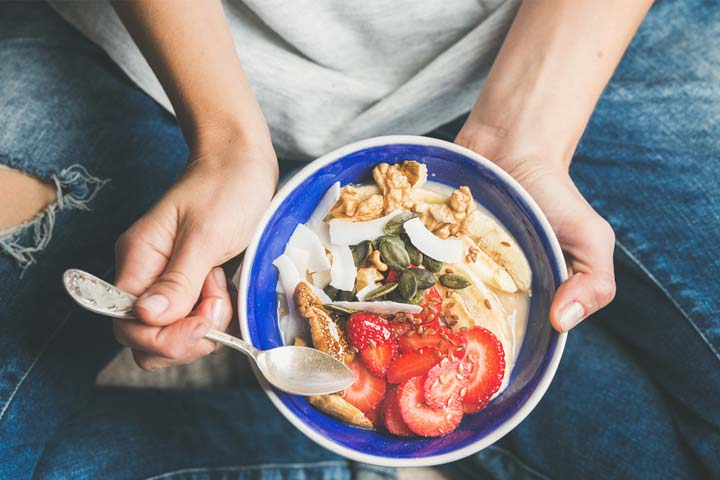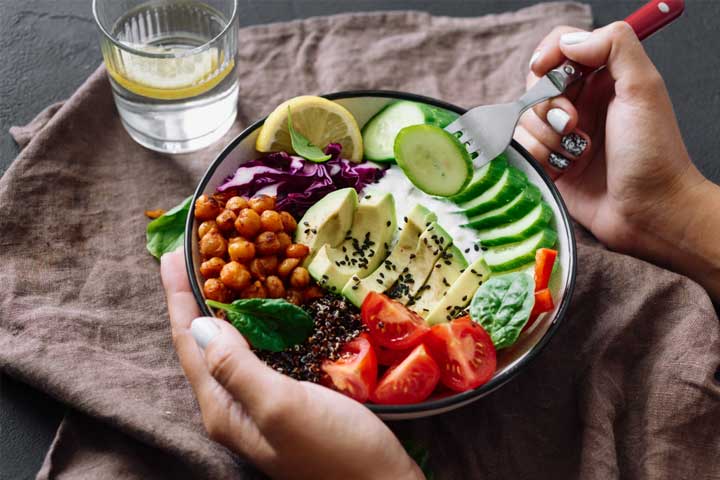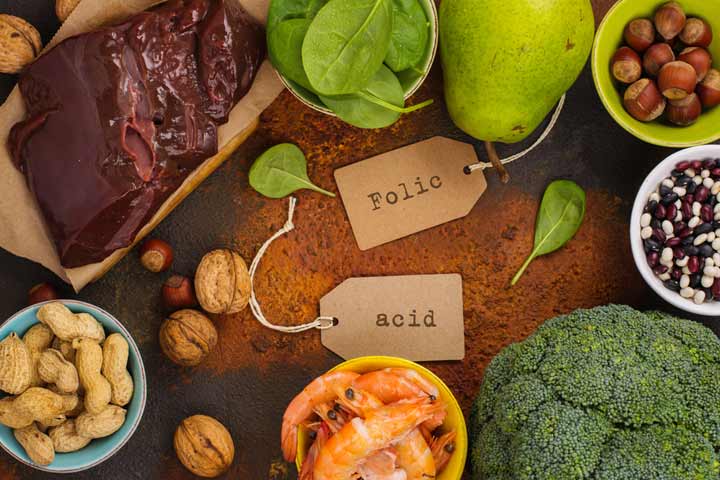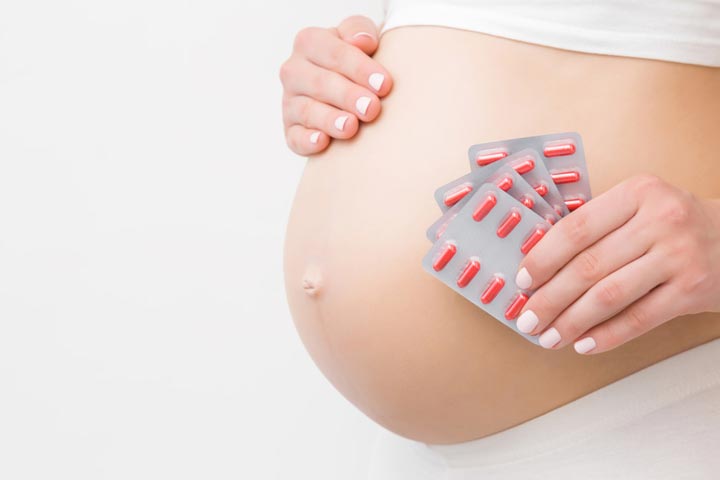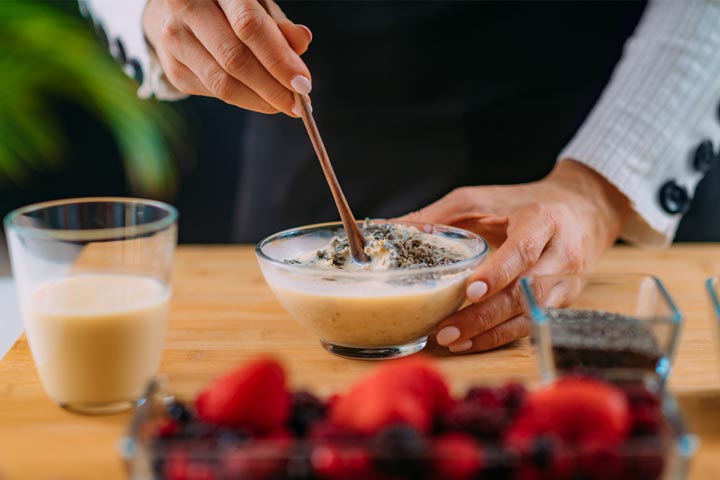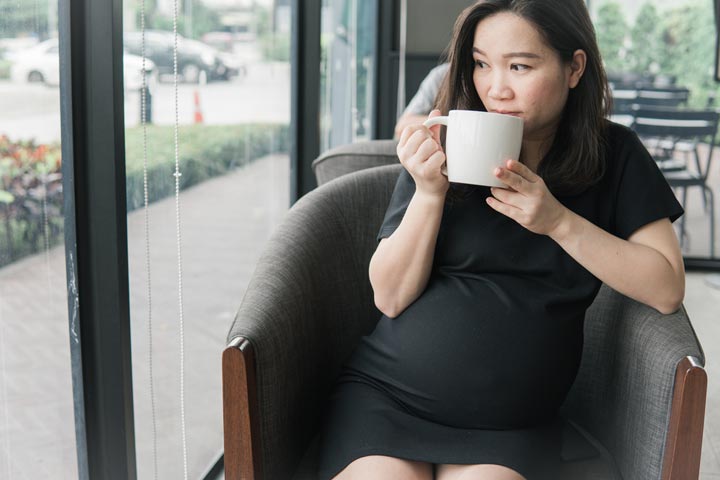
Image: Shutterstock
The first week of September is marked as the National Nutrition Week. In light of the occasion, we at MomJunction want to remind you how important nutrition is for a healthy and overall well being. Pregnant women need to be especially mindful of what they consume in the nine months of pregnancy. Along with proper sleep, workout, and a calm mind, a balanced diet is also one of the prerequisites of a healthy pregnancy. Continue reading our article as we list down 7 diet tips that expecting mothers need to follow during pregnancy.
1. Don’t Skip Breakfast
If you are someone who is not a breakfast person, you might want to start having it now since you are pregnant. Breakfast is the most important meal of the day, and with morning sickness and nausea, your body needs all the nutrition it can get. If you don’t want to start your day with a heavy breakfast, you can have some fortified cereals or toast and eat something later in the morning (1).
2. Consume Enough Fruits & Vegetables
It is ideal to consume 5 portions of vegetables and fruits in a day. You can eat them fresh or in canned, frozen, dried, or juice form. It is recommended to consume fresh fruits to get higher levels of nutrients and vitamins from them (2).
3. Folic Acid
It is recommended that women who are trying for a baby and in their first trimester of pregnancy take about 400 micrograms of folic acid in a day. If you didn’t take folic acid before conception, make sure you start right away. Folic acid plays a significant role in preventing any neural tube defects in your baby. If your baby has a higher chance of developing neural tube defects, your doctor might recommend a higher dosage (3).
4. Iron Supplements
If you are anemic, your doctor will recommend iron supplements. Having low levels of iron can lead to pregnancy complications to the mother such as a weakened immune system and the risk of catching infections. It also results in low birth weight in babies. But don’t worry, the routine blood tests taken during pregnancy will help detect if you are suffering from iron-deficiency anemia. You can also get iron from green leafy vegetables, legumes, meat, whole-grain rice, rolled oats, millet, and tofu (4).
5. Include Fiber-Rich Foods
The changing hormones, prenatal vitamins, and pressure from the growing uterus can lead to constipation in pregnant women. Some women may experience it during the early stage of pregnancy while a few others will have to deal with it towards the end. Constipation can be uncomfortable, and one way to get some relief is by including fiber-rich foods in your diet. Make sure your diet includes 24-34 grams of daily fiber intake (5).
6. Limit Foods That Are High In Salt, Sugar, And Fat
These include foods such as cream, chocolate, cake, biscuits, cookies, ice-cream, salad dressings, fizzy drinks, and fried foods. While the cravings during pregnancy might make it hard to resist some of these foods, make sure you keep it to small amounts. Foods that contain high levels of sugar, salt, and fat may contribute to excessive weight gain during pregnancy and puts you at risk of developing a heart disease (6).
7. Avoid Alcohol & Limit Caffeine
Increased consumption of caffeine can lead to complications such as low birth weight and miscarriage. However, you don’t have to go cold turkey on your daily dose of energy, just keep your intake to 200 milligrams per day. Foods that contain caffeine include tea, coffee, chocolate, energy drinks, and some soft drinks (7). Since there is no safe amount of alcohol that one can drink during pregnancy, pregnant women should avoid alcohol throughout their pregnancy as it can cause a range of pregnancy complications (8).
Along with following a balanced diet, an expecting mother should also make sure that she maintains food hygiene by washing the fruits and vegetables thoroughly to remove any traces of pesticides. It is also important to make sure you cook food thoroughly before consuming them, especially meat, poultry, and eggs.
If you found our article helpful, share it with expectant mothers to help them follow a healthy pregnancy.

